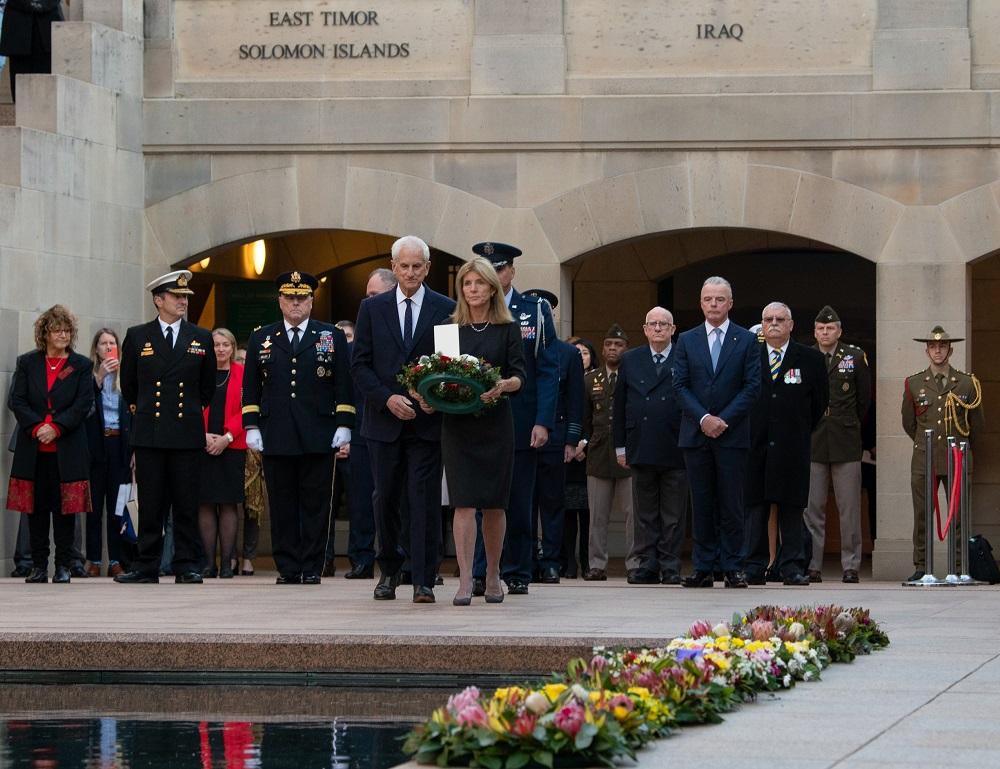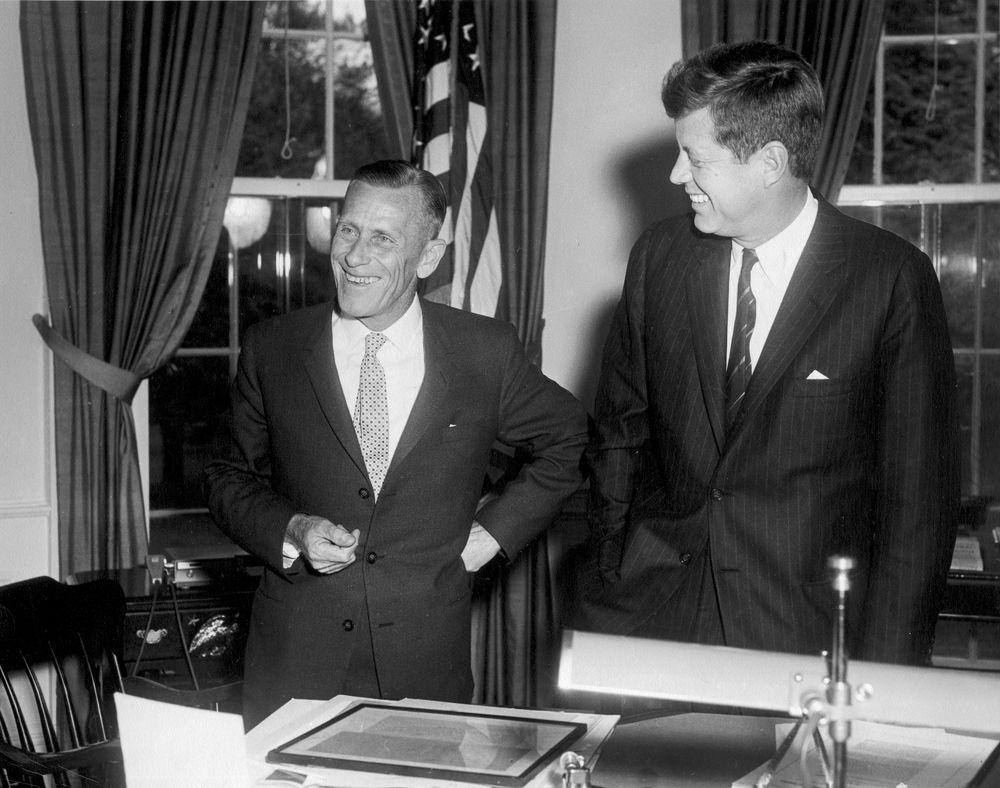
In early August 1943, John Fitzgerald Kennedy was a junior lieutenant in the US Navy in command of the motor torpedo boat PT-109.
Part of a force of large launches sent to intercept Japanese destroyers, Kennedy’s vessel was run down by a Japanese warship and sliced in two.
Most of the crew survived, though some were badly burned by exploding fuel. Kennedy, who had been a member of Harvard University’s swimming team, led the 10 other survivors in a long and difficult swim to an island more than 5 kilometres away. He towed the most badly wounded sailor with his life-jacket strap clenched between his teeth.
Kennedy made further swims, alone and with his crew, in attempts to find food and water and to contact US forces. An Australian coastwatcher, Sub-Lieutenant Arthur Reginald Evans, saw PT-109 explode and sent two Solomon Islander scouts from his team to search for survivors.
Biuku Gasa and Eroni Kumana found the Americans and showed Kennedy how to carve a message into a green coconut husk. They took that back to Evans, who sent a larger party of Solomons scouts to bring in the crew to his post.
The coastwatcher arranged for American PT boats to rescue the 11 survivors.
Kennedy went on to become president of the United States.
His daughter, veteran diplomat Caroline Kennedy, became US ambassador to Australia this week.
At a last post ceremony at the Australian War Memorial on Wednesday, the new ambassador met members of the families of surviving Australian coastwatchers. Two veterans, Ronald George Lee and James Burrowes, were unable to travel to Canberra but joined by video link.
Kennedy said it was a great honour to talk to the two coastwatchers, who played an essential role in keeping the region secure during World War II. ‘I owe personal gratitude to an Australian coastwatcher and two Solomon Islander scouts who saved my father’s life,’ she said. ‘These men represent the best of their generation and are an amazing example of the bonds of the US–Australia alliance.’
The highest ranking US military officer, General Mark Milley, chairman of the Joint Chiefs of Staff, said he was deeply honoured to participate in a wreath-laying ceremony with Kennedy and to meet Australian coastwatchers. ‘The World War II generation of Americans and Australians bequeathed us a set of freedoms, and we have an obligation today to uphold their sacrifices,’ Milley said.
Lee said the event was ‘a very special and personal acknowledgement by Ambassador Kennedy and the US government of the role we had as Aussie coastwatchers eight decades ago. I am proud at 98 to meet Her Excellency and share coastwatcher stories. The time I spent in the Solomons and other locations as a coastwatcher is as vivid today as it was then.’
Burrowes said he’d long been aware of the role played by the Australian and Solomon Islander coastwatchers in rescuing Kennedy and his crew. ‘So, I was honoured to receive the ambassador’s kind acknowledgement of our coastwatching role in the war and recognition of our rescue of the future president.’
Ambassador Kennedy presented Lee’s daughter, Eve Ash, and Burrowes’s son, Tom Burrowes, with replicas of the coconut on which her father had carved his rescue message.
In August 2014, the ABC reported that Kumana and Gasa were both invited to JFK’s inauguration in January 1961, but a British colonial officer reportedly stopped them from leaving the Solomons capital of Honiara on the grounds that their English was not good enough. The John F. Kennedy Presidential Library and Museum has a series of photographs from a meeting between Evans and the president in May of that year.

Kennedy will complete a historical circle on 6 August when she accompanies US Deputy Secretary of State Wendy Sherman to Honiara to commemorate the 80th anniversary of the Battle of Guadalcanal and to meet Solomon Islands officials.
At a media conference in Canberra on Monday, the ambassador was asked if she will meet Solomons Prime Minister Manasseh Sogavare to relay US concerns about his security pact with China. In response, Kennedy suggested that it was too soon to say what would happen on the trip and that Sherman would be best able to comment.
Asked to clarify speculation about how quickly the US or UK might be able to provide Australia with nuclear-powered submarines under the AUKUS arrangement, Kennedy said AUKUS covered submarines and other areas of cooperation and ‘there are many announcements that are going to be made in the coming weeks’.
Caroline Kennedy is no stranger to the strategic complexities of the Indo-Pacific. During her time as US ambassador to Japan from 2013 to 2017, she advanced the realignment of the US forces in Okinawa, promoted women’s empowerment and increased student exchanges. In November last year, she was awarded the Grand Cordon of the Order of the Rising Sun, the highest honour Japan awards foreigners, for her efforts to strengthen the US–Japan alliance.